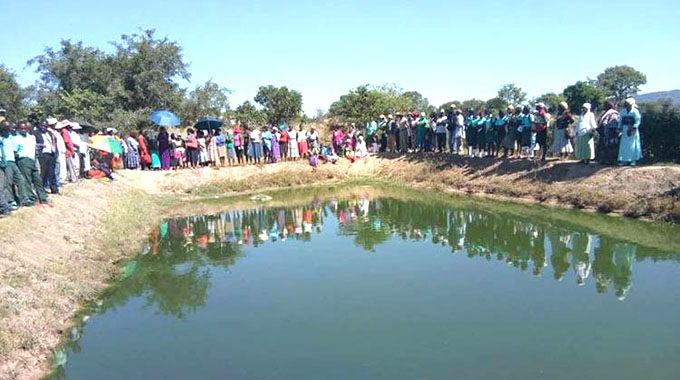
Nyasha Mapasa Manicaland Correspondent
Local development agency, Practical Action, is training hundreds of fish farmers in Mutasa District on the production and use of local feeding resources to mitigate against the high cost of aquatic feed formulations.
Fish farming has transformed the livelihoods of people in Mutasa, but of late farmers had been affected by the rising inflation which resulted in some failing to buy fish feed formulations.
Practical Action district project manager Mr Gift Dzitiro said farmers can use locally-formulated feeds which are affordable and still get the same results.
“We are looking for local entrepreneurs who are willing to partner us in this local feed formulation,” he said.
“This will be more affordable because it uses locally available resources.”
Mr Dzitiro said they had since started training farmers on the use alternative feeds like horticulture products and aquaponics.
“We have started training farmers on using cheaper food alternatives like aquaponics, whereby they put vegetable seedlings in the ponds which serve as food for the fish.
“We have also trained them on how to grow and use red worms and other horticultural crops like lettuce to feed their fish,” he said.
Mr Dzitiro said there was need to increase fish production in the country.
“We have not been able to export because local demand is high,” he said.
“Demand is exceeding supply, so we need to work on increasing production so that we surpass local demand.”
Mr Dzitiro advised farmers to take precautionary measures against predators.
“I encourage farmers to have fish nets or brooding cages to avoid the challenge of predation,” he said.
“These predators include humans, birds and tortoises. The problem of predation is at its peak when the fish are still small, so it is better to put your fingerlings in brooding cages and transfer them to ponds when they are mature.”
Practical Action has been promoting fish farming in Mutasa since 2015 under the livelihoods and food securing programme (LFSP) and is working with about 200 farmers.
